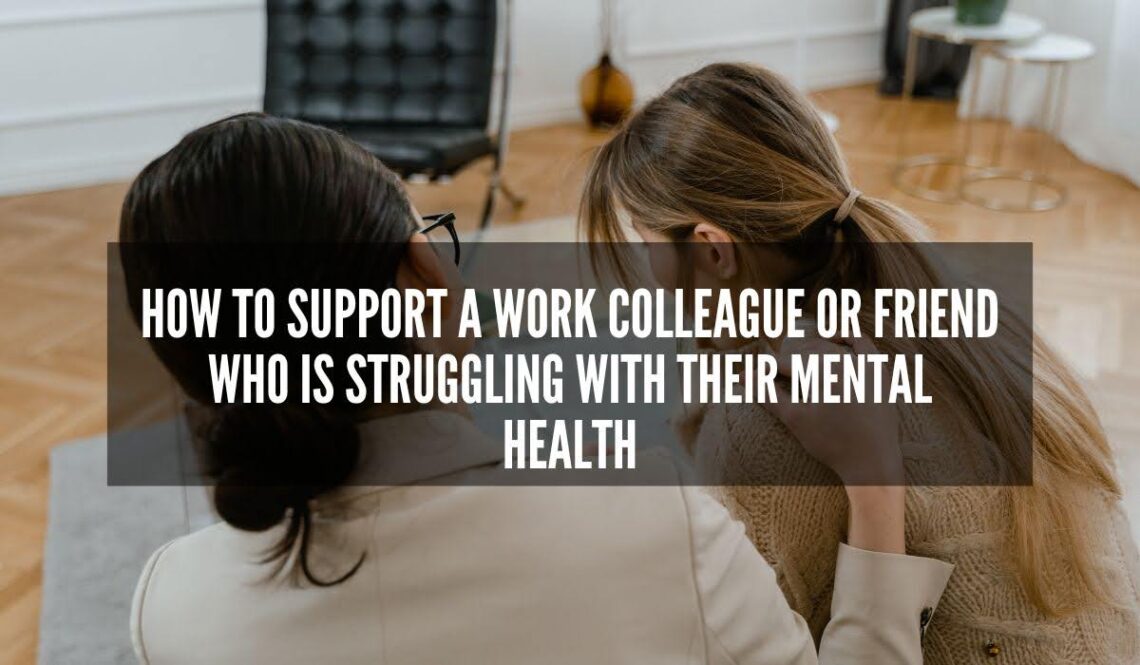
How to Support a Work Colleague or Friend Who Is Struggling with Their Mental Health
In 2024, the theme of World Mental Health Day is “It is Time to Prioritise Mental Health in the Workplace,” underscoring the importance of recognising and supporting colleagues and friends who may be struggling with their mental health and suicidal thoughts. Here’s how you can effectively provide support in your workplace:
Recognising Workplace Stressors
Workplace stressors that contribute to mental health struggles can include:
- Excessive Workload: Heavy work demands can lead to burnout and mental exhaustion.
- Lack of Support: Feeling unsupported by colleagues or management can increase stress levels and feelings of isolation.
- Bullying or Harassment: Negative interactions at work can significantly impact mental health and wellbeing.
- Poor Work-Life Balance: Difficulty balancing work responsibilities with personal life can lead to chronic stress and anxiety.
Offering Support
- Be Observant: Pay attention to changes in behaviour, such as decreased productivity, increased absenteeism, or signs of distress. These can indicate underlying mental health struggles.
- Start a Conversation: Approach your colleague or friend privately and express your concern. For instance, you could say, “I’ve noticed you seem stressed lately. How are you feeling?” Opening this dialogue shows that you care and are willing to listen.
- Listen Actively: When they share their feelings, listen without interrupting or judging. Show empathy and understanding, acknowledging their experiences and emotions.
Taking Practical Steps
- Encourage Use of EAPs: Suggest utilising Employee Assistance Programs (EAPs) if available. EAPs can provide confidential counselling and support services.
- Promote Professional Help: Recommend seeing a mental health professional and offer support in finding one. Participating in courses like the Accidental Counsellor Course can equip you with the skills to provide initial support.
- Provide Resources: Share information on mental health courses, such as Mental Health First Aid Courses, which can empower you to assist colleagues effectively.
By prioritising mental health in the workplace and actively supporting colleagues, we can create a healthier and more productive work environment. Encouraging open conversations about mental health reduces stigma and fosters a culture of support and understanding. Together, let’s make mental health a priority in our workplaces and communities.




